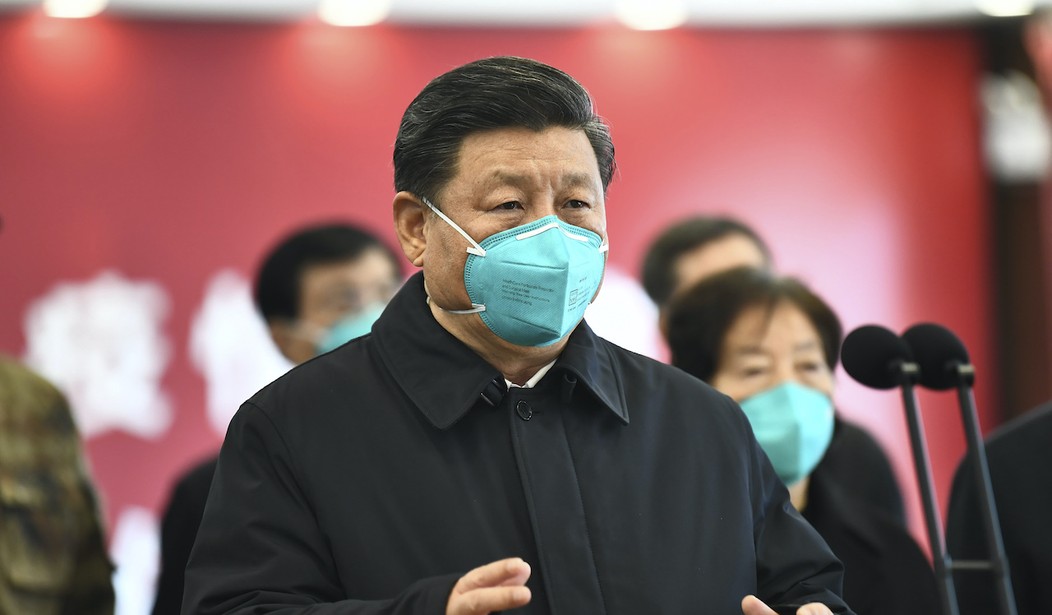As the Chinese coronavirus distracts the world, the Chinese Communist Party has ratcheted up its crackdown on religious freedom, and sources say President Xi Jinping is working on rewriting the Bible itself to “create a new version of Christianity shorn of its transcendent visions and values.”
Xi Lian, a professor at Duke University Divinity School, told The Wall Street Journal‘s Matthew Taylor King that Beijing doesn’t just want to repress religion — the Chinese Communist Party wants to transform it.
Lian said Beijing wants to “drain Christianity of its spirit.” China’s state-run Xinhua News Agency reported last year that Politburo Standing Committee member Wang Yang had presided over a meeting of so-called scholars and “religious people from the grassroots level” to discuss “making accurate and authoritative interpretations of classical doctrines to keep pace with the times.”
The Chinese Communist Party sees Christianity, which is likely China’s largest-growing religion, as a unique threat, Lian insisted. He mentioned three key reasons: Christianity’s international connection to believers inside and outside of China; Christianity’s congregational strength — “You have this ability to mobilize a stable, reliable community;” and the faith’s “transcendent vision, transcendent values,” which form a “moral and ideological rivalry” to communism.
Lian argued that Chinese people largely see the party’s Marxist-Leninist foundation as a spent force.
Xi has long insisted that religion should be “Chinese in orientation.” China is notorious for cracking down on Uyghur Muslims in the northern province of Xinjiang, but it also heavily restricts religious freedom for a wide range of beliefs, including Tibetan Buddhists.
According to sociologist Rodney Stark and co-author Xiuhua Wang in A Star in the East: The Rise of Christianity in China, there has been a 7 percent increase in Christians every year in China. In 1980, there were approximately 10 million Christians there. In 2007, that number had climbed to 61.1 million. By 2030, they estimated, there will be 294.6 million Christians — nearly the entire population of the United States.
As a Christian who enjoys the company of Chinese-Americans in my Bible study group, I personally appreciate the international nature of the Jesus movement. I also believe Christianity introduced a new concern for the poor and a new way of living into the world — a way of life that transformed the West and helped form the foundation of modern freedom and prosperity.
The Holy Spirit is real, and so are the Chinese Communist Party’s evil efforts to thwart Him. Yet Chinese Christians have long weathered tremendous persecution, and they will continue to preach the gospel in the Middle Kingdom.
China’s Attempt to Ban Handel’s ‘Messiah’ Underscores the Growth of Christianity in the Middle Kingdom
While Xi may insist that Christianity is a foreign religion in China, Lian rightly argued that Christianity has already been sinicized.
“Over decades Chinese evangelists leavened the staid faith of the missionaries with millenarian themes and charismatic practices, sustaining believers through the cataclysms of Mao’s rule and the post-1978 ‘reform and opening up’ period’s wrenching social changes,” King reported. “This helps explain why the religion—especially in its unregulated, underground form—is winning so many converts. Christianity in China has grown from about four million believers in the early 1950s, when Mao expelled Protestant missionaries, to more than 60 million today. Beijing’s problem isn’t that Christianity is too foreign; it’s that it’s become too Chinese.”
President Donald Trump is right to champion religious freedom in U.S. foreign policy, and his religious freedom push represents a warning to China.
Tragically, the push to remove “transcendent visions and values” from Christianity has worked in the past. As Albert Mohler, president of Southern Baptist Theological Seminary, noted earlier this week, there is a strong parallel between China’s efforts to “create a new version of Christianity” and those pioneered by Protestant liberalism in Europe and America.
“Back in the time after the enlightenment in Western cultures and particularly in the 19th and early 20th centuries, as a spirit of anti-supernaturalism, a basically secular worldview began to set in amongst the elites in Europe and eventually also in the United States. The argument was that what the Christian church needed to survive was an updated theology,” Mohler noted. Liberal Protestants started cutting out supernatural claims from Christianity, from the virgin birth to Jesus’s claims to be God, to the Resurrection.
This transition hollowed out the churches. “There’s no reason to be a Christian if Christianity is not biblical Christianity,” Mohler quipped.
There is no more powerful weapon against true Christianity than a false Christianity that subverts the belief in Jesus’ Resurrection and the bodily resurrection promised to those who accept His free gift of eternal life.
Christianity is a real threat to the oppression of the Chinese Communist Party, but Beijing has adopted a terrifying strategy to fight it. I pray my brothers and sisters in the Middle Kingdom are savvy enough to fight it. May God make them cunning as serpents and innocent as doves.
Tyler O’Neil is the author of Making Hate Pay: The Corruption of the Southern Poverty Law Center. Follow him on Twitter at @Tyler2ONeil.









Join the conversation as a VIP Member